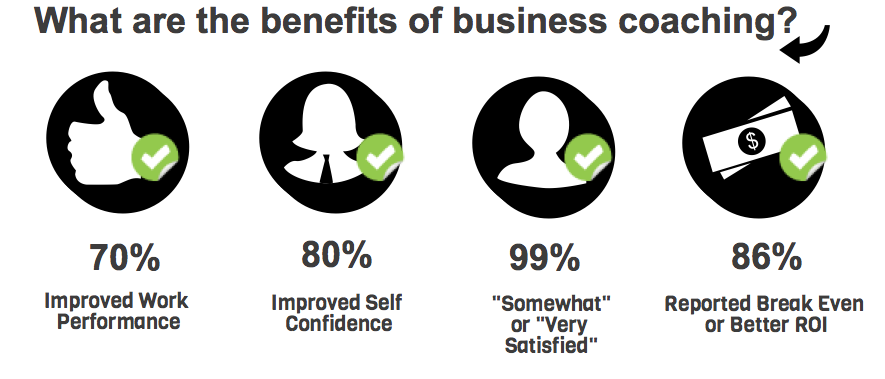“The one thing that people are never good at is seeing themselves as others see them. A coach really, really helps.”
Executive Coaching
Top executives need – and want support to lead effectively. In fact, 78% of CEOs receiving coaching say that seeking out coaching was their own idea. Executive coaching provides an important sounding board to help your executives succeed and continue to grow as leaders and mentors for your organization.
Our Coaching Philosophy
Seeing ourselves as we are seen by others.
In a way, their perception IS our reality.
This idea speaks to the core of effective business coaching: a transformative process that helps clients dramatically improve their leadership skills by encouraging self-discovery, and challenging them to take action toward improvement. Coaching is about asking the right questions at the right moments to uncover the blind spots that are prohibiting professional growth. A coach is a trusted advisor – someone willing to ask tough questions. A coach has the tools to help a leader discover and clarify pivotal issues, and form a strategy to achieve that leader's goals.
APPROACH
All coaching begins with an initial consultation to assess the specific goal of the coaching assignment, define the scope of the relationship, identify priorities for action and establish specific desired outcomes. The duration of the coaching relationship varies depending on needs and preferences.
The coaching relationship is established through interview and assessment tools to evaluate the leader's current opportunities and challenges. Subsequent coaching sessions may be conducted in person or over the telephone, with each session lasting a previously established length of time. The coach may provide additional resources in the form of relevant articles, checklists, assessments, or models to support the individual's or business’ thinking and actions. Between scheduled coaching sessions, the leader may be asked to complete specific actions that support the achievement of one's personally prioritized goals.
ASSESSMENTS
We deploy a variety of assessments and tools to support the coaching process, depending on the needs and circumstances of the leader. Assessments provide objective information that can enhance self-awareness, and awareness of others and their circumstances. Effective assessments can provide a benchmark for creating coaching goals and actionable strategies, and offer a method for evaluating progress.
360-degree feedback is one method of systematically collecting opinions about an individual's performance from a wide range of co-workers, and can also include customers or other people outside of the organization. The benefit of collecting data of this kind is that the person gets to see a panorama of perceptions, which affords a more complete picture than does mere self-perception.
In addition to formal assessments, a variety of concepts, models and principles drawn from the behavioral sciences, leadership, and management research may be incorporated into the coaching conversation to promote a change in perspective, provide new frameworks for looking at opportunities and challenges, and energize and inspire positive actions.


